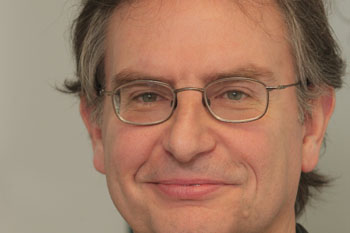''DNA can be corrected to reduce the frequency of diseases such as Alzheimer's or cancer''.
The expert in Genetics Javier Novo participates in the cycle "Without science there is no culture", promoted by the University of Navarra at partnership with Civican

"In the near future, advances in genome correction will make it possible, for the first time, to reduce the frequency of diseases associated with aging, such as cancer or Alzheimer's disease. This will make it possible to achieve longevity figures that now seem impossible". So says Javier Novo, professor of Genetics of the University of Navarra, one of the experts who will be taking part this Friday, the 20th, in the series 'Without Science there is no culture', organized by the School of Sciences of the academic center at partnership with Civican.
In his talk, entitled"Medicine and genome: the future is already here", the specialist will address the great advances that Genetics has experienced since the complete reading of the human genome ten years ago. Javier Novo emphasizes that during this time genes have been found that were not even known: "Genes that do not serve to manufacture proteins, but that fulfill important functions that could influence many human diseases. The creation of a fairly detailed catalog of all the small differences in the genomes of different people is also transcendental.
The geneticist will also explain the usefulness of devices developed by companies for personalized genome reading. "Apart from commercial issues, this tool will radically change the way we do medicine. It will open the door to predicting the risk of suffering from common diseases, always bearing in mind that there are environmental factors that can modify these risks," he stresses.
The secret of youth: stem cells
Regarding the increase in human longevity, the professor of Genetics and lecturer at the University of Navarra will explain in his talk that the increase in life expectancy will be possible, above all, "thanks to the elimination of old cells and their replacement by young ones, using stem cells".
Javier Novo's lecture , open to the public, will take place at 7:30 p.m. in the Civican Auditorium. The cycle will be completed with two other talks -on January 27 and February 3- at position, respectively, by the professors of the academic center Fernando Echarri, expert in Environmental Education , who will talk about "movie" gardens; and Enrique Baquero, professor of Zoology and Ecology, whose discussion paper will show part of the urban fauna that surrounds us and that in many occasions is invisible in the cities.
Day: Friday, January 20.
Time: 19.30 h.
Place: Civican.
